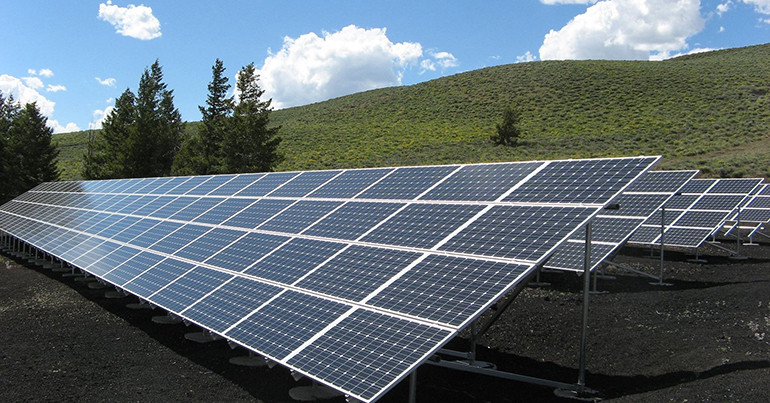Using blockchain and solar energy, UN- and World Bank-endorsed startup BitLumens has been tooling its solar home technology to bring electricity and financial inclusion to underserved populations. Myanmar and Indonesia are BitLumens’s first Southeast Asia stops. Founding CEO Veronica Garcia spoke with Southeast Asia Globe about their plans to lease solar systems to power off-the-grid households

Tell us a bit about BitLumens…
We’re bringing solar home systems and mini-grid into off-grid communities – so these are communities that are not connected to the power lines. We have some sensors added into these [leased solar power] machines that collect information from each use… such as power generation, power consumption and also carbon mitigation… Before we install these devices, our agents collect KYC, or know-your-customer data, on each of the users, so we would collect things like how many people are within that household, what are their wages, what type of floor do they have… All of this information goes into the blockchain – this KYC combined with the transaction data. These people pay for the devices every month, and… [we] give a [score based on their payment history] so that at the end of the payment period, they will have a credit score, which works as a financial identity where they could either open a bank account or they could have access to a micro loan that would be backed by BLS [BitLumens] tokens.
[InspireAsean2018]
Are the BLS coins environmentally friendly to mine?
Yes, of course. We use Ethereum [blockchain], and Ethereum uses proof of stake that uses way less energy consumption [to mine than] Bitcoin. As you know, Bitcoin takes around 40 terawatt hours to operate. We don’t accept Bitcoins in the first place because we don’t think it’s very environmentally friendly. We try to stay in protocols that need less computational power.
Why is BitLumens important to countries like Myanmar and Indonesia?
I do anticipate a decentralised energy system in these types of regions where the power lines cannot reach small communities. In these regions, 1 kilometre of power lines costs around half a million dollars. If you need to run, let’s say, 100 kilometres of power lines until you reach a community of 2,000 users, there is no way that the utility company will do that. However, if you collect the data and tell them this is how much we generate, this is how much they consume and this is how much they pay, things are totally different and one would be able to find partnerships where one could place [solar home] mini-grids.
[manual_related_posts]
Do you have future plans for expansion in other parts of Southeast Asia?
Yes, Indonesia is also an important market for us. We are looking at places like Nosatangara, this is at the southernmost part of Indonesia. There are thousands of people who are not connected to a grid, so we are looking at a place where we could actually place a pilot there… We have partnered with a really good organisation there and the UN was really good to set up all of these connections for us, so we are happy to be announcing that pretty soon… and then we will immediately start the deployment.
This article was published in the September 2018 edition of Southeast Asia Globe magazine. For full access, subscribe here.

